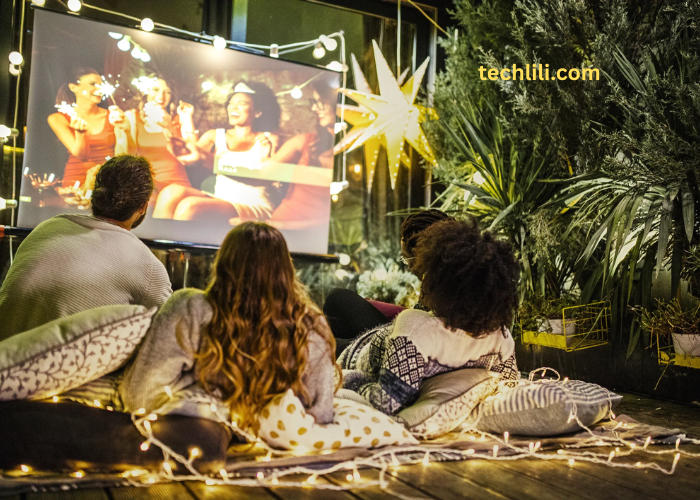Minimalist Lifestyle: Declutter Your Mind and Home

In today’s fast-paced, consumer-driven society, the concept of minimalism is gaining popularity as a way to break free from the clutter and chaos that often surround our daily lives. A minimalist lifestyle is not just about owning fewer possessions; it’s about embracing a mindset that prioritizes simplicity, intentionality, and clarity. By adopting minimalism, you can declutter not only your home but also your mind, leading to a more fulfilling and peaceful existence.
In this article, we will explore the principles of minimalism, the benefits of living a minimalist lifestyle, and practical tips for decluttering both your home and your mind. Whether you’re just starting your journey or looking for ways to further embrace minimalism, this guide will provide valuable insights and actionable steps to help you live with less but enjoy more.
What is Minimalism?
Minimalism is the art of living with less. It’s about eliminating the unnecessary to make room for what truly matters. At its core, minimalism encourages individuals to focus on the things that bring joy, fulfillment, and meaning, while discarding excess possessions, distractions, and stress. A minimalist lifestyle can extend beyond your physical environment, impacting your mental, emotional, and even social well-being.
The Philosophy Behind Minimalism
Minimalism is not a one-size-fits-all approach. Instead, it’s a personal journey that encourages introspection and deliberate decision-making. By simplifying your life, you create more space—both physically and mentally—for the things that bring you happiness. It is about being intentional with how you spend your time, money, and energy. In essence, minimalism is an antidote to the overwhelming clutter that so many people experience in modern life.
Minimalism can take on different forms for different people. For some, it might involve reducing the number of material possessions they own. For others, it might mean simplifying their schedule, focusing only on the relationships and activities that truly enhance their lives. Regardless of how it manifests, the goal remains the same: to create a life that is more meaningful, focused, and free from distractions.
The Benefits of a Minimalist Lifestyle
Adopting a minimalist lifestyle offers numerous benefits that go beyond just the physical decluttering of your home. Below are some of the key advantages:
1. Reduced Stress and Anxiety
A cluttered environment often leads to a cluttered mind. The physical chaos around you can trigger feelings of overwhelm, stress, and anxiety. By embracing minimalism, you can eliminate the visual distractions that contribute to these negative emotions. A clean and organized space helps you feel more in control, which can have a calming effect on your mental state.
2. Increased Focus and Productivity
When your surroundings are tidy and uncluttered, it becomes easier to concentrate on what truly matters. Minimalism helps you eliminate distractions, making it easier to focus on your tasks, goals, and priorities. Whether you’re working from home or pursuing personal projects, minimalism can help you stay on track and be more productive.
3. Improved Financial Health
A minimalist lifestyle often encourages conscious consumption. Instead of spending money on unnecessary items or indulging in impulse purchases, minimalism helps you prioritize your spending. This can lead to a healthier financial situation as you focus on saving, investing, and spending intentionally on things that bring long-term value to your life.
4. Enhanced Relationships
By simplifying your life, you create more time and energy to nurture the relationships that matter most to you. Minimalism encourages quality over quantity, allowing you to prioritize meaningful interactions with friends, family, and loved ones. When you focus less on material possessions and more on emotional connections, your relationships become stronger and more fulfilling.
5. More Time for What Matters
In a world where we are constantly bombarded with distractions and obligations, minimalism offers a way to reclaim your time. By letting go of commitments, possessions, and activities that don’t align with your values, you free up space in your life for what truly matters. Whether it’s pursuing hobbies, spending time outdoors, or simply relaxing, minimalism gives you the time to enjoy the things that bring you happiness.
How to Declutter Your Home: Practical Steps
Decluttering your home is often the first step in embracing a minimalist lifestyle. A clean and organized environment sets the foundation for a simpler and more intentional life. Below are some practical steps you can take to declutter your home and create a space that supports your minimalist goals.
1. Start with One Room at a Time
The idea of decluttering an entire home can feel overwhelming, so it’s best to break the process down into manageable steps. Start with one room or area of your home, such as your bedroom, living room, or kitchen. Focusing on one space at a time allows you to maintain momentum and see progress as you go.
2. Assess Your Possessions
Take stock of everything you own. Ask yourself, “Do I use this? Does this bring me joy? Is this adding value to my life?” If an item doesn’t serve a practical purpose or doesn’t contribute to your happiness, it’s time to let go. The goal is not to get rid of everything, but to keep only what truly matters.
3. Organize by Category, Not by Location
Instead of decluttering room by room, try organizing your items by category. For example, tackle all your clothing, books, kitchenware, or sentimental items at once. This approach helps you get a clearer picture of what you truly have and prevents you from just shifting items around without truly decluttering.
4. Implement the “One In, One Out” Rule
To prevent clutter from creeping back into your home, implement the “one in, one out” rule. For every new item you bring into your home, make sure to remove something that you no longer need. This helps maintain a clutter-free environment while keeping your possessions intentional and meaningful.
5. Digitize Where Possible
Paper clutter can quickly accumulate, especially if you have a lot of documents or mementos taking up space. Consider digitizing important documents, photos, and other items that don’t need to be kept in physical form. Scanning or photographing these items frees up space and allows you to access them easily when needed.
6. Adopt a Storage System
If you find it difficult to part with certain items, invest in storage solutions that help keep things organized. Use bins, boxes, or shelving to store seasonal items, keepsakes, or items you don’t use regularly. This allows you to maintain a tidy living space without having to part with things that hold sentimental value.
How to Declutter Your Mind: Mental and Emotional Wellness
Minimalism is not only about physical decluttering; it’s also about decluttering your mind. In a world filled with constant information, distractions, and stress, it’s easy to become mentally overwhelmed. The following tips can help you declutter your mind and cultivate a sense of peace and clarity.
1. Practice Mindfulness and Meditation
Mindfulness practices, such as meditation, can help clear mental clutter and foster a sense of calm. Taking just a few minutes each day to meditate or engage in deep breathing exercises can help you stay grounded and focused. These practices allow you to detach from external stressors and reconnect with your inner self.
2. Simplify Your To-Do List
Having too many tasks on your to-do list can cause mental overwhelm. Instead of juggling multiple responsibilities at once, focus on the most important tasks and break them down into smaller, manageable steps. Prioritize your day and avoid overloading yourself with unnecessary commitments.
3. Let Go of Mental Clutter
Mental clutter can also come in the form of negative thoughts, worries, and regrets. Practice letting go of mental baggage by focusing on the present moment and shifting your mindset to a more positive and productive one. Techniques like journaling or cognitive reframing can help you process and release negative thoughts.
4. Set Boundaries and Learn to Say No
Another key aspect of mental decluttering is setting boundaries with others. Learn to say no to requests and commitments that don’t align with your values or contribute positively to your life. Establishing healthy boundaries helps prevent burnout and allows you to protect your time and energy.
5. Practice Digital Detox
In today’s digital age, constant connectivity can lead to information overload and mental fatigue. Consider implementing regular digital detoxes by limiting your screen time or taking breaks from social media. This helps you stay present in the moment and reduces distractions that contribute to mental clutter.
Minimalism for Long-Term Success
Adopting a minimalist lifestyle is not a one-time task but rather an ongoing process of self-reflection, simplification, and intentional living. To maintain a minimalist lifestyle long-term, it’s important to:
- Regularly reassess your possessions, habits, and commitments.
- Continuously declutter your physical and mental space.
- Stay mindful of your values and focus on what truly brings you fulfillment.
- Cultivate gratitude for the things you have and the people in your life.
By embracing minimalism as a lifestyle rather than a temporary solution, you can enjoy lasting benefits, including improved mental clarity, financial freedom, and a deeper sense of purpose.
Conclusion
The minimalist lifestyle offers a powerful way to declutter both your home and your mind. By simplifying your surroundings and focusing on what truly matters, you can experience greater peace, happiness, and fulfillment. Whether you’re just starting on this journey or are already living a minimalist lifestyle, the key is to approach it with intentionality and mindfulness.
As you begin to declutter your home and mind, remember that minimalism is not about perfection. It’s about making conscious choices that align with your values and create space for what brings you joy. By embracing minimalism, you’re not just creating a simpler life—you’re creating a life that is richer in meaning and purpose.






